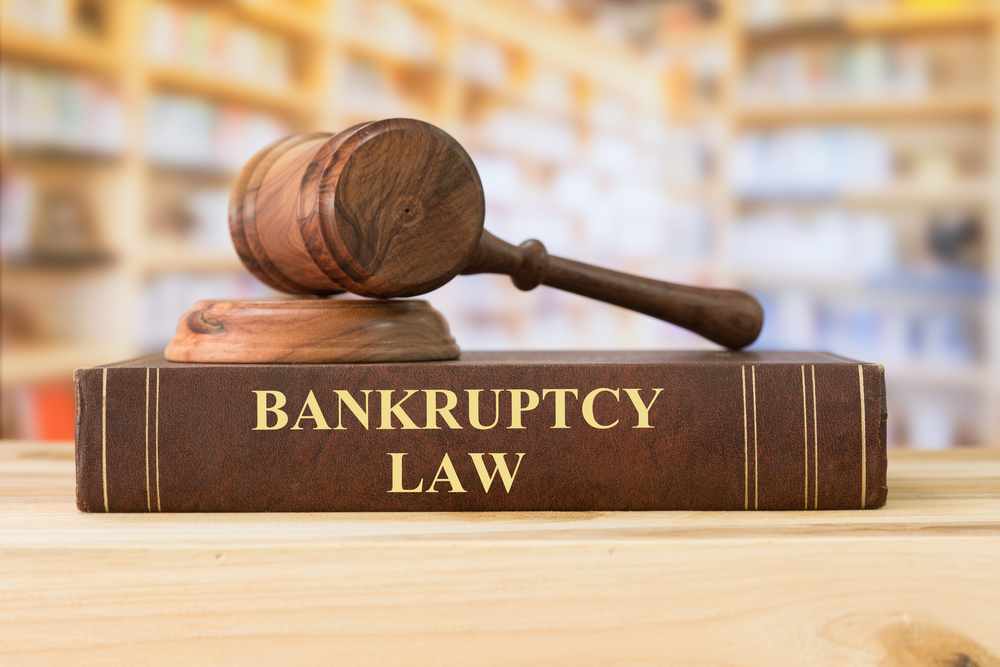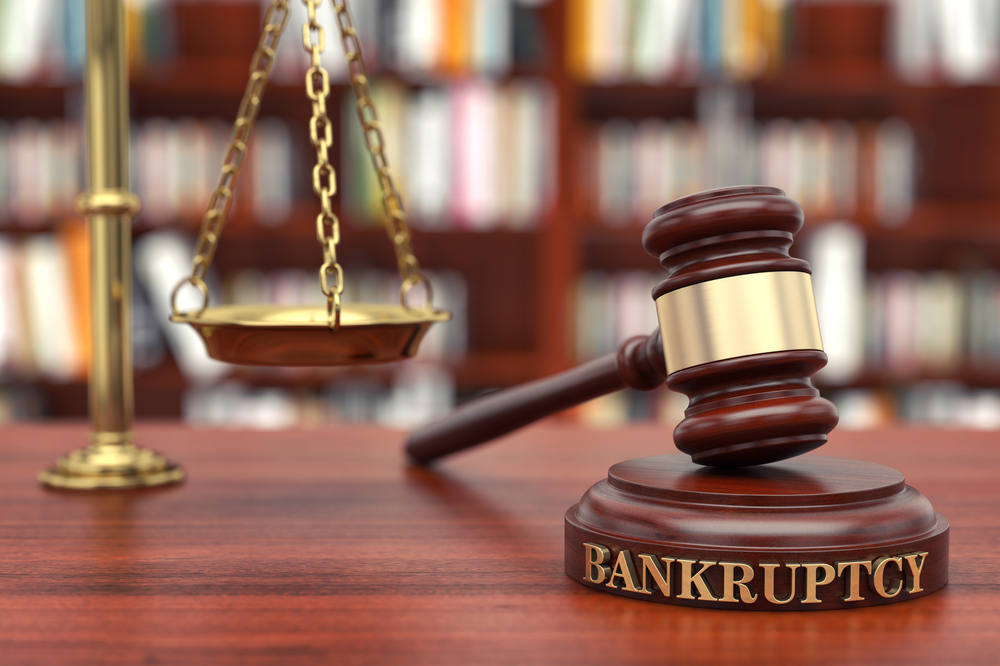786-529-6060
Free Consultation
Filing for bankruptcy in West Palm Beach is an undesirable scenario most people aim to avoid. However, the truth remains that debt problems can affect individuals from all walks of life, irrespective of their responsible financial behavior. Unforeseen events such as job loss, divorce, or medical emergencies can catch even the most diligent individuals off guard. Once creditors become aware of these circumstances, a barrage of phone calls from them will commence.
When contemplating bankruptcy in West Palm Beach, it is crucial to seek legal representation from a well-established and respected firm. Look no further than the Rivera Law Firm. Our team of experienced bankruptcy attorneys is ready to provide comprehensive assistance with various legal proceedings related to bankruptcy. We understand the importance of exploring your options for a fresh start, and you can rely on us for support in the following areas:
- Chapter 7 Bankruptcy
- Chapter 11 Bankruptcy
- Chapter 13 Bankruptcy
- Credit card bills
- Debt Settlements
- Medical bills
- Non-Bankruptcy Workouts
- Personal Bankruptcy
- Student Loan Debt
- Taxes & Bankruptcy
- Wage Garnishments
- Foreclosure
- Repossession
We have been helping individuals filing for bankruptcy in West Palm Beach to effectively eliminate their debts for years. Our dedicated bankruptcy attorney regularly consults with clients from West Palm Beach before initiating the filing process. During these consultations, our attorneys thoroughly evaluate each client's unique circumstances to determine whether Chapter 7 or Chapter 13 bankruptcy is the most suitable option. In some instances, our clients discover that there are alternative approaches that may be more advantageous than pursuing a bankruptcy case.
Call our West Palm Beach Bankruptcy attorneys today to find out which legal options you qualify for. Our extensive experience solving debt problems for clients gives us the confidence that we’ll provide the legal representation you seek and deserve. You can schedule a free consultation with an attorney from our legal team.
FAQ About West Palm Beach Bankruptcy Law
At our West Palm Beach bankruptcy law practice, we take pride in utilizing our expertise to alleviate the financial and legal burdens our clients face. In fact, it is not uncommon for additional burdens to be lifted as a result. Here are some frequently asked questions that shed light on the range of our practice and the burdens we can help relieve:
What Are the Most Common West Palm Beach Bankruptcy Filings?
Determining the most suitable type of bankruptcy to file for in West Palm Beach is a crucial decision. Each option offers distinct opportunities to address your debt problems and improve your financial outlook. Understanding the advantages and disadvantages of each choice is essential for achieving positive outcomes. Now, let's explore the legal assistance provided by each bankruptcy option:
Chapter 7 Bankruptcy in West Palm Beach
During Chapter 7 bankruptcy, a trustee is appointed to oversee the liquidation of assets to repay debt. This is the reason why a Chapter 7 bankruptcy is also called liquidation bankruptcy. Once the trustee has sold the assets and turned over the proceeds to creditors, the unpaid portion of the debt is considered paid.
Not all assets are subject to liquidation in bankruptcy. While the specifics may vary depending on the state, limited asset protection typically extends to personal belongings such as clothing, household furniture, and vehicles. In many Chapter 7 cases, individuals may not have eligible assets for liquidation. Consequently, these clients are able to safeguard their disposable income, and creditors often do not receive any repayment.
Whether liquidation does or does not produce repayment to debtors, the debt is discharged and creditors are no longer eligible to seek repayment. Some debts do not qualify for discharge under a Chapter 7 bankruptcy. Exemptions include tax debt, student loans, child support, and alimony. Assets such as homes or automobiles acquired via mortgage or auto loan are subject to liens.
In addition, according to the Bankruptcy Code, debtors must pass the Means Test to be eligible for Chapter 7 bankruptcy. This test compares their median income levels with the state median income. Only individuals whose median income falls below their state's threshold will qualify for Chapter 7 bankruptcy. The Means Test plays a significant role in making this determination. Furthermore, completing credit counseling is mandatory for the bankruptcy filing to be recognized.
Chapter 11 Bankruptcy in West Palm Beach
Chapter 11 bankruptcy is primarily known as a debt restructuring process commonly utilized by businesses, including corporations. However, it can also be employed by high-net-worth individuals. Due to its association with businesses, it is often referred to as a form of "business bankruptcy." This particular chapter enables filers to create a repayment plan while retaining their assets. It allows businesses to continue their operations during the bankruptcy proceedings, allowing for a potential path towards financial recovery.
In Chapter 11 bankruptcy, corporations are able to protect the assets of their shareholders. This is due to the legal separation between the corporation and its shareholders, treating them as distinct entities.
Chapter 11 bankruptcy is known for its inherent complexity and demanding nature. The associated fees for securing a bankruptcy attorney in this type of bankruptcy often come with a higher premium compared to other bankruptcy options. Consequently, Chapter 11 bankruptcy is typically more suitable for businesses and individuals with substantial financial resources.
Chapter 13 Bankruptcy in West Palm Beach
Chapter 13 bankruptcy is typically for people who do not pass the means test and have a steady source of income via employment. This chapter protects the valuable assets of filers and hinges on a plan to settle debts over time. Chapter 13 bankruptcy also discharges various types of old debts, including some divorce-related debts and some tax-related situations.
One drawback of Chapter 13 bankruptcy is that the debtor is obligated to repay a portion or the entirety of the debt. This entails submitting a three to five-year repayment plan to the bankruptcy court. If the initially proposed plan is rejected, it must be revised and resubmitted until the court accepts it. This can result in a more prolonged and iterative process than other bankruptcy options. Only after the last payment is made are debts discharged.
The repayment plan in Chapter 13 bankruptcy offers debtors the opportunity to request lower interest rates on their debts and potentially obtain partial debt forgiveness. However, it is important to note that creditors can raise objections to the proposed plan. Once the court approves the plan, creditors are legally bound to comply with its terms and conditions. This ensures that debtors have a structured and legally enforced path towards repaying their debts under the approved plan.
In parallel to the Means Test used in Chapter 7 bankruptcy, eligibility for Chapter 13 bankruptcy is determined by a debt cap. To qualify for Chapter 13, debtors must have unsecured debts (such as credit card debt, medical bills, etc.) and secured debts (such as mortgage or car loans), which total below a certain threshold, currently set at $2,750,000. This debt limit is adjusted periodically to account for inflation and ensure accuracy over time.
Chapter 13 bankruptcy filings are generally considered more intricate, leading to a greater likelihood of involving the active participation of a bankruptcy attorney. Consequently, the complexity of Chapter 13 plans often necessitates the guidance and expertise of an attorney. As a result, attorney fees for Chapter 13 cases are known to be higher compared to Chapter 7 bankruptcy cases but still lower than the fees associated with Chapter 11 bankruptcy cases. This reflects the level of involvement and the specific legal considerations involved in Chapter 13 proceedings.
What are Florida’s Bankruptcy Laws?
Even though the U.S. Bankruptcy Code governs the U.S. Bankruptcy process, states may have their own rules about what property creditors cannot touch. These are known as “exempt property.” A set of federal exemptions are offered via the bankruptcy code, but Florida law requires residents to use state exemptions because exemptions here are among the best.
Only established residents are eligible for state exemptions. This means you must have been a resident for two years before filing. If the two years cannot be proven, you must apply the rules from the state you lived in during the six months before moving. The federal exemptions are used if you no longer qualify for the exemptions in your previous state.
What About Exemptions in West Palm Beach, Florida?
Having bankruptcy exemptions is a big benefit of being a West Palm Beach resident. This is one of the reasons that Florida has such strict residency laws. Out-of-state residents have attempted every trick in the book to use Florida exemptions for their financial situation. Here are some details about areas of exemption.
Homestead Exemption
The Homestead Exemption safeguards the equity in your home when going through a bankruptcy filing. The notable advantage is that there is no limit to the amount of home equity that can be protected under this exemption. This protection applies to homes on properties of 0.5 acres or less in municipalities or 160 acres or less in other locations. When bankruptcy lawyers are not required to prepare a foreclosure defense, it simplifies and streamlines the overall process.
In order to qualify for the Homestead exemption, it is necessary to have owned the home for a minimum of 1,215 days, equivalent to approximately three years and four months, before filing for bankruptcy. Contact us today to learn more about the Homestead exemption and its potential implications for your situation.
Wage Exemptions
Individuals seeking debt relief will find it beneficial to learn that the wages of the head of the family are fully exempt, up to $75 per week. This exemption covers paid and unpaid wages, including those deposited into bank accounts up to six months before filing for bankruptcy. Additionally, up to 75% of the wages of other family members can be protected, or an amount equal to 30 times the federal minimum wage, whichever is greater. These provisions offer important safeguards for individuals and families in financial distress.
Personal Property Exemptions
State bankruptcy law exempts personal property falling into one of the following categories:
- Education savings
- Funeral costs paid to the Preneed Funeral Contract Consumer Protection Trust Fund
- Health savings
- Retirement Accounts
- Hurricane savings
- Personal property valued up to $1,000, increasing to $4,000 without the Homestead exemption. This generally includes household goods such as art, electronics, and furniture
- Prescribed home health aids
- Some of the property in a business partnership
- Tax credits and refunds
Wildcard Exemption
If you do not use the homestead exemption in West Palm Beach bankruptcy proceedings, you may be able to use the state’s Wildcard Exemption. It can be used on up to $4,000 of personal property. It also doubles to $8,000 if you and your spouse file jointly.
When you own a home but have no equity to protect under the Homestead Exemption, the Wildcard Exemption can come into play. The Wildcard Exemption allows you to protect assets or property that other exemptions may not cover. If you owe more on your home than its current value, you can still use the Wildcard Exemption to safeguard other assets or property. It provides additional flexibility and protection for individuals facing bankruptcy.
You can also use the Wildcard Exemption if your main home is a mobile home.
Motor Vehicle Exemption
In a Florida Bankruptcy, individuals filing for bankruptcy are allowed to exempt up to $1,000 of equity in a motor vehicle. However, this exemption amount is relatively small, and as a result, many individuals risk losing their cars if they cannot reach a payment agreement with the bankruptcy trustee. It is important to carefully consider and negotiate with the trustee to protect your vehicle if its equity exceeds the exempted amount. Seeking guidance from a bankruptcy attorney can help you navigate this process and explore potential options to retain ownership of your car.
Pension Exemptions
Most pension and retirement funds are exempt, including:
- 401(k) 's
- 403(b) 's
- Profit-sharing plans
- Money purchase plans
- IRAs and Roth IRAs
- Teachers' retirement benefits
- Public employee retirement benefits
- Firefighter and municipal police pensions
West Palm Beach and the rest of Florida are full of retirees. To be sure that your retirement savings will be protected from bankruptcy in West Palm Beach, you’ll want to speak with a bankruptcy lawyer about the subject.
Generally speaking, the US bankruptcy code protects the assets of retirees during the Chapter 7 and Chapter 13 bankruptcy proceedings. Our legal team can answer additional questions you may have in this area.
Insurance and Benefits Exemptions
The following may be exempted by state residents:
- Disability income benefits
- Fraternal society benefits
- Life insurance proceeds from a policy payable to specified beneficiaries
- The cash surrender value of a life insurance policy
- The proceeds of an annuity, except for those set up by lottery winners
Public Benefits Exemption
The following public benefits are exempt from bankruptcy in West Palm Beach:
- Crime victim's payout benefits, unless attempting to discharge debt related to injury from a criminal event
- Local public assistance benefits
- Reemployment assistance benefits
- Social Security
- Veteran’s benefits
- Workers' compensation and unemployment benefits
Alimony and Child Support Exemptions
For many people, divorces are a sobering cause of bankruptcy proceedings. Alimony and child support payments are exempt to the extent they are considered reasonably necessary to support you. It’s best to let bankruptcy lawyers review the details of your case to determine what “reasonably necessary” will be defined as in bankruptcy court.
Exemption for Some Damage Awards
Damages awarded from working in a hazardous occupation are exempt. Any additional earnings from lawsuits or pending legal claims go to the bankruptcy estate. For lawsuits that were unresolved at the time of filing, the trustee can consult bankruptcy attorneys to decide whether settlement or trial will be the next step.
How Can A West Palm Beach Bankruptcy Lawyer Help?
Our West Palm Beach bankruptcy law firm provides invaluable legal assistance for those seeking a fresh start. All clients are guided through the details of how bankruptcy law can work for them. Contact our law firm today to speak to a bankruptcy attorney about how legal representation can help you move your bankruptcy proceedings forward.
Whether drafting a loan modification, assisting with the filing fee, or something else, our West Palm Beach law office can do it. Our bankruptcy lawyers at Rivera Law Firm provide legal representation to clients to help them enjoy the fresh start that the law entitles all of us to seek.
Managing the Stigma of a West Palm Beach Bankruptcy
Contrary to contemporary lore, the bankruptcy process doesn’t have to be dramatic. The fact is that some of the most financially successful people, including well-known public figures, have filed for bankruptcy, some of them multiple times. Take it a step further, and you’ll often find that bankruptcy was often an important step in how successful people were able to secure a bright financial future.
These are details that our West Palm Beach legal team understands and are experts in communicating with clients. Our legal counsel is trained to help clients forget about the negative stigma of bankruptcy. Our legal teams focus on guiding clients through their current financial situation and towards the fresh start they deserve.




